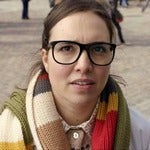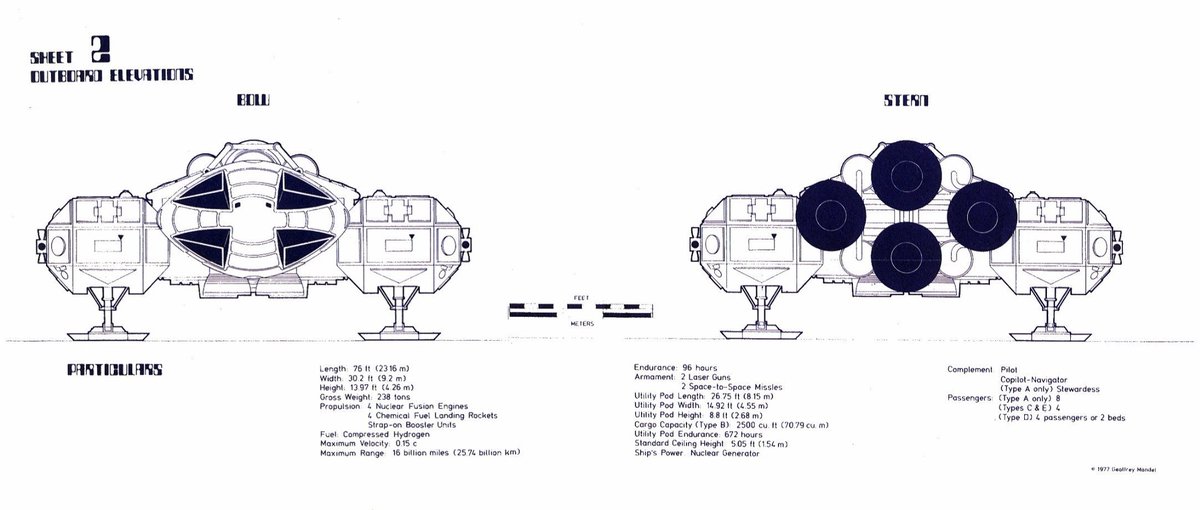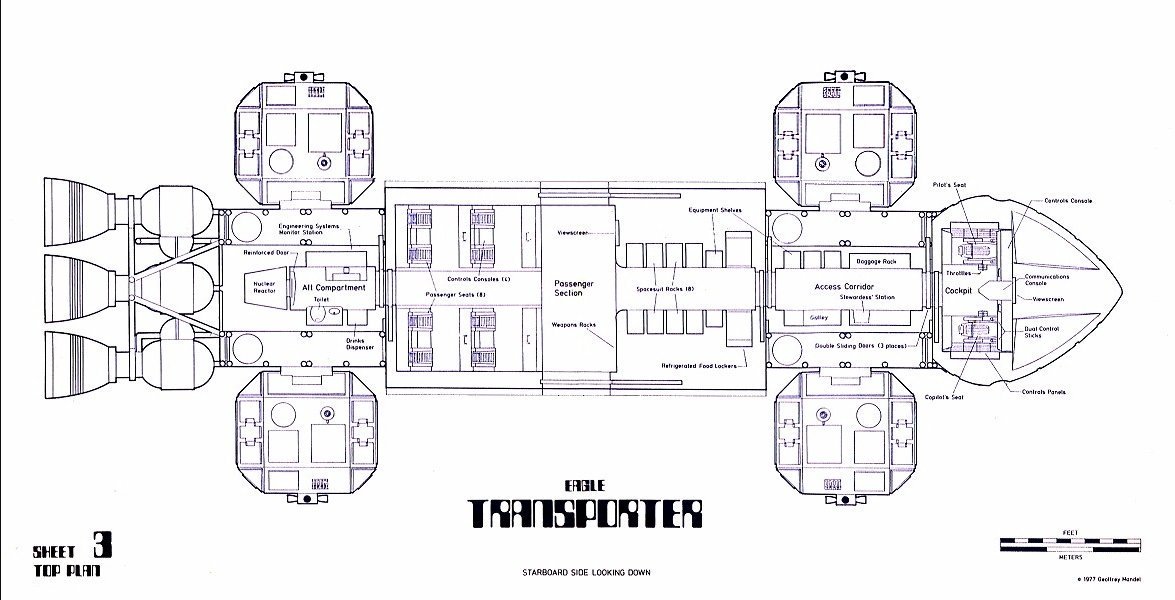Post by legios on Oct 10, 2011 16:04:41 GMT
Episode 1: Breakaway
So, to kick off my watch-through I began, logically enough, at the beginning - with Episode 1:" Breakaway"
Quick Write Uo: Commander John Koenig is sent to Moonbase Alpha with a brief to take command of the base and ensure the launch of the first manned mission to the, probably inhabited, planet Meta by any means necessary. The probe ship astronauts are however incapacitated by a mysterious malady, but is it a virus or does the answer lie in the radioactive waste dubs on the Far Side and could it pose a threat to all of Alpha.....
This first episode is very much a classic example of setting up the premise, as we are introduced to the main characters for the series, Moonbase Alpha (the “home base†environment for the series) and in the last act the real premise of the show. To that end the first half of the episode is on a fairly slow burn, as we are drip fed setting details (including a little bit of “as you know John†from the Commisioner for Moon Programs – or whatever his job title actually is – when he is discussing the imminent launch of the mission to Meta), along with the slowly unfolding mystery of what is drivin g apparently random astronauts mad and causing them to have fatal accidents.
This certainly gives us a chance to get to know the characters that we are going to spend the rest of our voyage into Space(:1999) with. It is fair to say that they are drawn in very generic terms. Indeed, one could almost say that three leads almost don't need names. Barry Morse' Victor Bergman is The Scientist, and demonstrates this by making cool-headed pronouncements using complicated words, Barbara Bain's Helena Russell is The Doctor – almost entirely characterised by caring about her patients. At the apex of this triumvirate is Martin Landau's Commander John Koenig. Landau plays Koening from the start as a somewhat, cold, distant figure – understandable as it is implied that he is being sent to Alpha as a bit of a government hatchetman to sort out a program in difficulties. That said, the fact that some of that distance is intended to be read as a front that he his putting up is implied by a certain amount of warmth in his reaction to learning that Bergman is on site as chief scientist.
We get to meet some of the supporting cast briefly – Sandra Benes and Paul Morrow, who are every bit as cold and functional as the computer
Cold could actually be the epithet that best applies to the look and feel of the show as well. It is very much a product of its era in many ways. In a time when the Brutalist style was still very much in the air as the future of architecture Space:1999 gives us a Moonbase that feels very much like a great monolithic concrete structure, like many university and local authority buildings of the period (in fact, the library at my Alma Mater Aberdeen University always reminded me of a slightly brown version of Alpha, and inside is the sterile white of a generic 1970's future where SCIENCE! Has regularised and regimented life in the interests of efficiency. Even the uniforms used on Alpha are grey and colourless. Mind you, our single glimpse of Earth – in the person of the aforementioned Commissioner – doesn't seem quite so drab and grey, so it may simply be the aesthetic of a (very) functional Moonbase.
The tenor of the times can also be seen in the root cause of Alpha's problems – the turning of the Far Side into a series of radioactive waste dumps, which Earth will not accept being closed for even the shortist period, suggests a future where Nuclear power is absolutely everywhere in huge quantities. Very much in keeping with the vision of the future at the time, where the UK was coming to realise its dependence on domestic coal and foreign oil to keep the wheels of industry turning and the domestic lights on. At the time nuclear power was very much seen as the eventual saviour of us all, and we were told that nuclear power stations would spring up everywhere in time. Space:1999 very much takes place in that version of the future, but created by people who didn't really understand that nuclear waste isn't quite the same as coal ash....
A couple of random technology thoughts occur to me. Although on the one hand there is a low-tech aesthetic to some of Space:1999 – chunky space suits, 1970's style moon buggies and the big reaction engines on the Eagles, both the staging of the show and some incidental lines of dialogue suggest some technological advances that we are still struggling towards – most noteably gravity control, which is acknowledged as the reason that people bound around on the surface but stroll normally down Alpha's corridoors. By contrast the micro-processor revolution doesn't seem to have quite taken here – Alphan's refer to “computer†in the singular as if there is only one ginormous computer that runs the whole base. And yet, like Star Trek they managed to prefigure the mobile 'phone, except that Alpha's are better/worse in that they are actually small videophones (they also open and close doors, which I suppose removes the issue of forgetting your keys at the start of your shift....)
One final odd thought – the Commissioner seems to be almost a red herring. He appears once on a video screen to deliver some “as you know Bob†exposition, and then pops up in person on Alpha to be obstructive in one scene and then stand in the background, fall over and need to be helped up. He doesn't really appear to have a story function that I can identify......
So, for the moment I shall thank the Alphans for their slightly cold welcome as they (and we) are blasted into space and hurtling towards the planet Meta and an uncertain future.....
Next Time: Episode 2 “War Gamesâ€
So, to kick off my watch-through I began, logically enough, at the beginning - with Episode 1:" Breakaway"
Quick Write Uo: Commander John Koenig is sent to Moonbase Alpha with a brief to take command of the base and ensure the launch of the first manned mission to the, probably inhabited, planet Meta by any means necessary. The probe ship astronauts are however incapacitated by a mysterious malady, but is it a virus or does the answer lie in the radioactive waste dubs on the Far Side and could it pose a threat to all of Alpha.....
This first episode is very much a classic example of setting up the premise, as we are introduced to the main characters for the series, Moonbase Alpha (the “home base†environment for the series) and in the last act the real premise of the show. To that end the first half of the episode is on a fairly slow burn, as we are drip fed setting details (including a little bit of “as you know John†from the Commisioner for Moon Programs – or whatever his job title actually is – when he is discussing the imminent launch of the mission to Meta), along with the slowly unfolding mystery of what is drivin g apparently random astronauts mad and causing them to have fatal accidents.
This certainly gives us a chance to get to know the characters that we are going to spend the rest of our voyage into Space(:1999) with. It is fair to say that they are drawn in very generic terms. Indeed, one could almost say that three leads almost don't need names. Barry Morse' Victor Bergman is The Scientist, and demonstrates this by making cool-headed pronouncements using complicated words, Barbara Bain's Helena Russell is The Doctor – almost entirely characterised by caring about her patients. At the apex of this triumvirate is Martin Landau's Commander John Koenig. Landau plays Koening from the start as a somewhat, cold, distant figure – understandable as it is implied that he is being sent to Alpha as a bit of a government hatchetman to sort out a program in difficulties. That said, the fact that some of that distance is intended to be read as a front that he his putting up is implied by a certain amount of warmth in his reaction to learning that Bergman is on site as chief scientist.
We get to meet some of the supporting cast briefly – Sandra Benes and Paul Morrow, who are every bit as cold and functional as the computer
Cold could actually be the epithet that best applies to the look and feel of the show as well. It is very much a product of its era in many ways. In a time when the Brutalist style was still very much in the air as the future of architecture Space:1999 gives us a Moonbase that feels very much like a great monolithic concrete structure, like many university and local authority buildings of the period (in fact, the library at my Alma Mater Aberdeen University always reminded me of a slightly brown version of Alpha, and inside is the sterile white of a generic 1970's future where SCIENCE! Has regularised and regimented life in the interests of efficiency. Even the uniforms used on Alpha are grey and colourless. Mind you, our single glimpse of Earth – in the person of the aforementioned Commissioner – doesn't seem quite so drab and grey, so it may simply be the aesthetic of a (very) functional Moonbase.
The tenor of the times can also be seen in the root cause of Alpha's problems – the turning of the Far Side into a series of radioactive waste dumps, which Earth will not accept being closed for even the shortist period, suggests a future where Nuclear power is absolutely everywhere in huge quantities. Very much in keeping with the vision of the future at the time, where the UK was coming to realise its dependence on domestic coal and foreign oil to keep the wheels of industry turning and the domestic lights on. At the time nuclear power was very much seen as the eventual saviour of us all, and we were told that nuclear power stations would spring up everywhere in time. Space:1999 very much takes place in that version of the future, but created by people who didn't really understand that nuclear waste isn't quite the same as coal ash....
A couple of random technology thoughts occur to me. Although on the one hand there is a low-tech aesthetic to some of Space:1999 – chunky space suits, 1970's style moon buggies and the big reaction engines on the Eagles, both the staging of the show and some incidental lines of dialogue suggest some technological advances that we are still struggling towards – most noteably gravity control, which is acknowledged as the reason that people bound around on the surface but stroll normally down Alpha's corridoors. By contrast the micro-processor revolution doesn't seem to have quite taken here – Alphan's refer to “computer†in the singular as if there is only one ginormous computer that runs the whole base. And yet, like Star Trek they managed to prefigure the mobile 'phone, except that Alpha's are better/worse in that they are actually small videophones (they also open and close doors, which I suppose removes the issue of forgetting your keys at the start of your shift....)
One final odd thought – the Commissioner seems to be almost a red herring. He appears once on a video screen to deliver some “as you know Bob†exposition, and then pops up in person on Alpha to be obstructive in one scene and then stand in the background, fall over and need to be helped up. He doesn't really appear to have a story function that I can identify......
So, for the moment I shall thank the Alphans for their slightly cold welcome as they (and we) are blasted into space and hurtling towards the planet Meta and an uncertain future.....
Next Time: Episode 2 “War Gamesâ€








